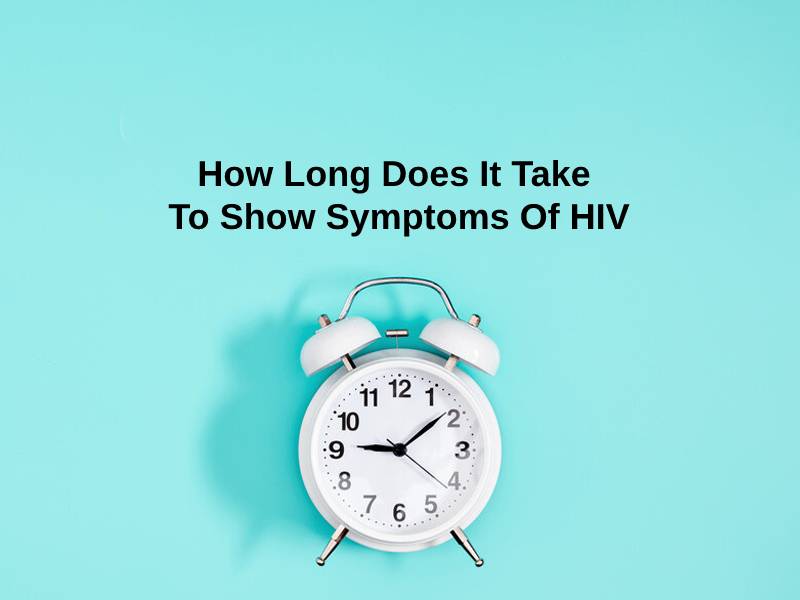Exact Answer: 2-4 Weeks
The human immunodeficiency virus (HIV) is a virus that targets the immune system of your body. It can develop to acquire immunodeficiency syndrome if left untreated. Early detection is critical for decreasing illness development.
Symptoms differ from person to person, but being aware of the early signs and symptoms can help you get identified and treated as soon as possible. This article will discuss HIV and how long it takes for signs to show before someone can be treated.

How Long Does It Take To Show Symptoms Of HIV?
| Stage | Duration |
| 1st Stage | 2-4 Weeks |
| 2nd & 3rd Stage | 2-3 Months |
HIV is a virus that causes the immune system to deteriorate. There is presently no cure for it, although there are therapies that can help individuals live longer. In most situations, once HIV infection has taken root, the virus remains in the body for the rest of one’s life.
HIV signs, unlike those caused by other infections, do not appear and disappear overnight. If left unchecked, the disease advances through three phases, each with its own set of symptoms and problems, some of which are life-threatening.
Antiretroviral therapy can lower HIV levels in the blood to undetectable levels. The virus will not develop to the subsequent phases of HIV infection if it is undetectable. Furthermore, the virus cannot be passed on to a partner during intercourse.
The first signs of HIV develop 2–4 weeks after a person is exposed to the virus, but in other situations, they may take months or years to emerge.
Not everyone who contracts HIV will develop symptoms right away. If any HIV symptoms do arise, they come 2–4 weeks after a person is exposed to the virus. Symptoms may not show for months or even years in certain circumstances.
Why Does It Take That Long To Show Symptoms Of HIV?
HIV can be broken down into three stages, according to doctors:
- The first stage of HIV infection is known as acute HIV infection.
- Stage 2 HIV infection is also known as chronic HIV infection.
- Stage 3, also known as AIDS, is the third stage of the disease.
The progression of these several stages does not take a predetermined period. The rate at which a person’s HIV progresses is determined by a variety of factors, including the medicine they are taking. Based on the stage, the indications and symptoms differ.
The immune system’s resistance to HIV causes the symptoms. The virus multiplies quickly and spreads throughout the body during the earliest stages. CD4 cells are singled out and killed. As a result, the level of HIV in the blood is quite high, as are the possibilities of transmission at this point.
Medication-assisted HIV control is critical for both maintaining quality of life and preventing disease progression. When HIV has considerably damaged the immune system, stage 3 HIV, known as AIDS, occurs.
Many people do not experience symptoms at first, and some do not experience symptoms for years or decades. However, there are warning signs that might arise immediately after Hiv / aids, such as flu-like symptoms. Even if you don’t feel unwell, HIV lowers your immune system.
It exploits infection-fighting white blood cells known as CD4 cells to produce thousands of copies of itself. HIV destroys so many of these cells without therapy that your body is unable to protect you from life-threatening illnesses. If your CD4 level falls beyond 200, you have AIDS.
Conclusion
Anyone who is experiencing HIV symptoms should see a doctor as soon as possible. This is especially crucial if the person has recently had sexual contact with another person or shared a needle.
For a long period, HIV might go unnoticed. As a result, anyone who has recently had unprotected sex and is concerned about HIV infection should get medical help as soon as possible, even if they have no symptoms. Anyone who has recently shared a needle is at risk.
It can be tough to talk about the risk of being infected with HIV. HIV, on the other hand, can be fatal if not treated properly. In these instances, people must prioritize their long-term health and consult with a doctor.
 Samantha Nicole
Samantha Nicole